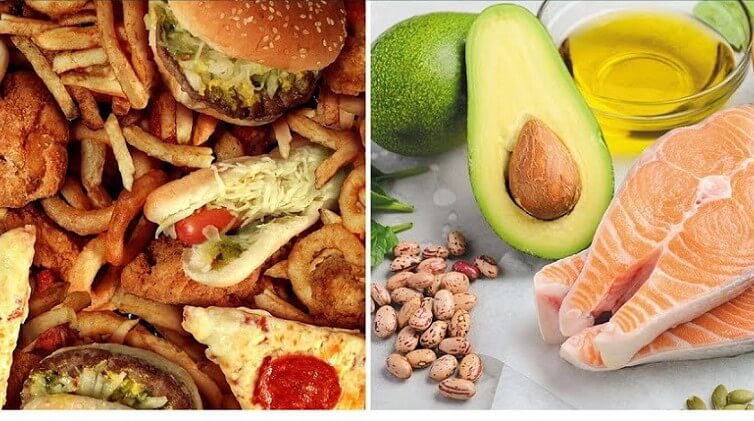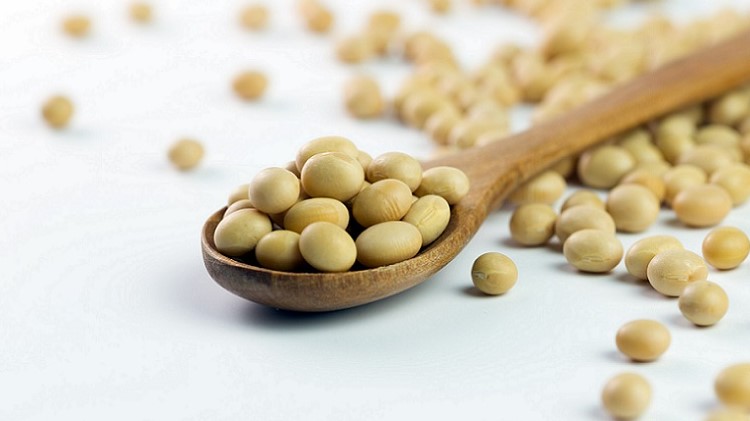The importance of healthy fats to women’s health cannot be overemphasized. For starters, healthy fats will help in absorbing the minerals and vitamins derived from food sources, ensuring that your body optimizes the micronutrients available in the foods you consume.
Women typically have a greater fat store in comparison to men and these fat stores provide women with a greater source of energy, especially during active training or a competitive sporting event.
It therefore goes without saying that women bodybuilders and athletes need to consume a whole lot more healthy fats, if they want to be able to successfully support their energy demands during competition, cardio workout, high-intensity interval training (HIIT), resistance or weight training.
In this post, you’ll get to know the difference between healthy and unhealthy fats. We also highlight some of the benefits of healthy fats and round up with three of the best food sources of healthy fats for women’s health.
The Difference between Healthy and Unhealthy Fats
The foods you consume contain different types of fats which may be classified as either healthy or unhealthy.
Unhealthy fats are trans and saturated fats which you should try as much as possible to minimize or avoid when planning a dietary plan. Trans fats are those fats that are available in fast foods like French fries and hamburgers. Trans fats are also found in margarine and even commercially baked biscuits and cookies.
On the other hand, saturated fats can be found mainly in animal-based consumer products like meat, cheese, and butter. In truth, it may be difficult to completely avoid trans and saturated fats, but you should try as much as possible to minimize your consumption of these unhealthy fats.

However, when it comes to healthy fats, you have monounsaturated and polyunsaturated fats. Monounsaturated fats can be found in avocados, nuts and olive oil while polyunsaturated fats are also available in some nuts and seeds as well as soybean oil, Sunflower oil and omega fatty acids.
Even though monounsaturated and polyunsaturated fats are widely accepted as healthy fats, they can still be detrimental to your cutting program by increasing your daily calorie count. This can happen if your consumption of foods with these healthy fats is excessive and not in moderation.
You should therefore limit the amount of healthy fats you include in your dietary plan, especially if you are aiming to lose weight. Healthy fats are high in calories and therefore your daily fat consumption should be limited to between 20 and 35 percent of your overall calorie count for a day.
The Impact of Healthy Fats to Women’s Health
Healthy fats are highly beneficial to women’s health in several ways and here are a few worth mentioning here:
#1. Healthy Fats Increase Satiety
Healthy fats are capable of increasing your level of satiety and reducing cravings.
If you are running a cutting program, you might want to include a good amount of healthy fats in your nutrition.
However, make sure that you keep your meals balanced with vegetables, fruits, grains, and lean protein.
#2. Healthy Fats Reduce Visceral Fat
According to the American Diabetes Association, increasing your daily intake of food sources rich in healthy monounsaturated fats instead of unhealthy fats like trans and saturated fats will help reduce both insulin resistance and visceral (belly) fat.
#3. Healthy Fats Help in Reducing Inflammation
Polyunsaturated fats like Omega-3 fatty acids are known to reduce inflammation in the body which will improve your cardiovascular conditioning as well as reduce your risk of incurring injuries during HIIT or resistance training.
Healthy fats also help to reduce inflammation in menstruating women, especially during the follicular phase when inflammation levels tend to be elevated.

#4. Healthy Fats Reduce Your Risk of Type 2 Diabetes
By substituting trans and saturated fats for monounsaturated or polyunsaturated fats in your daily meals, you will positively impact your insulin sensitivity and significantly reduce your risk of contracting type 2 diabetes.
#5. Healthy Fats Aid Quick Recovery
Your recovery from injuries can be quicker when you include sufficient amounts of healthy fats in your diet. Polyunsaturated fats like Omega-3 fatty acids from foods like seeds and fatty fish offer anti-inflammatory benefits that can speed up recovery.
Three of the Best Food Sources for Healthy Fats
#1. Oils
Oils come highly recommended as one of the best food sources for healthy fats. Extra virgin olive oil for example, is rich in antioxidants and polyunsaturated fats while coconut oil has effective anti-inflammatory properties.
#2. Omega-3 Fatty Acids
Omega-3 fatty acids are polyunsaturated fats that can be sourced from foods like grass-fed meat, salmon and other fatty fish, nuts and seeds. You can include nuts like walnuts in your daily diet and flaxseed is also rich in Omega-3 fatty acids.
Omega-3 fatty acids will help to boost both your brain function and cardiovascular conditioning.
#3. Soy
Soy is rich in protein, fiber, and polyunsaturated fats. Soy is particularly useful to women’s health as it is known to reduce estrogenic diseases while also extending menstrual cycles.

Conclusion
When preparing a dietary plan, you should always try as much as possible to reduce your intake of trans and saturated fats which are unhealthy fats. As a matter of fact, saturated fats can have an adverse effect on the health of your gut by disturbing its natural flora and fauna to cause health issues like diarrhea and irritable bowel syndrome.
To avoid these and many more health problems, you should avoid or eat less foods with high concentrations of trans and saturated fats like butter, fatty red meat, and full-fat dairy products.
However, you should substitute foods with trans and saturated fats with foods consisting of monounsaturated and polyunsaturated fats which are healthy fats.
Healthy fats will improve women’s health in a number of ways, such as; increasing satiety, reducing visceral fat, reducing inflammation and speeding up recovery, and preventing type 2 diabetes.
But while your diet plays a crucial role in your cutting program, you should give equal attention to your supplementation, training regimen, rest and recovery, and lifestyle choices.
If you want more information on how healthy fats can help you achieve your weight loss goals, you can chat with an expert here for free today.


